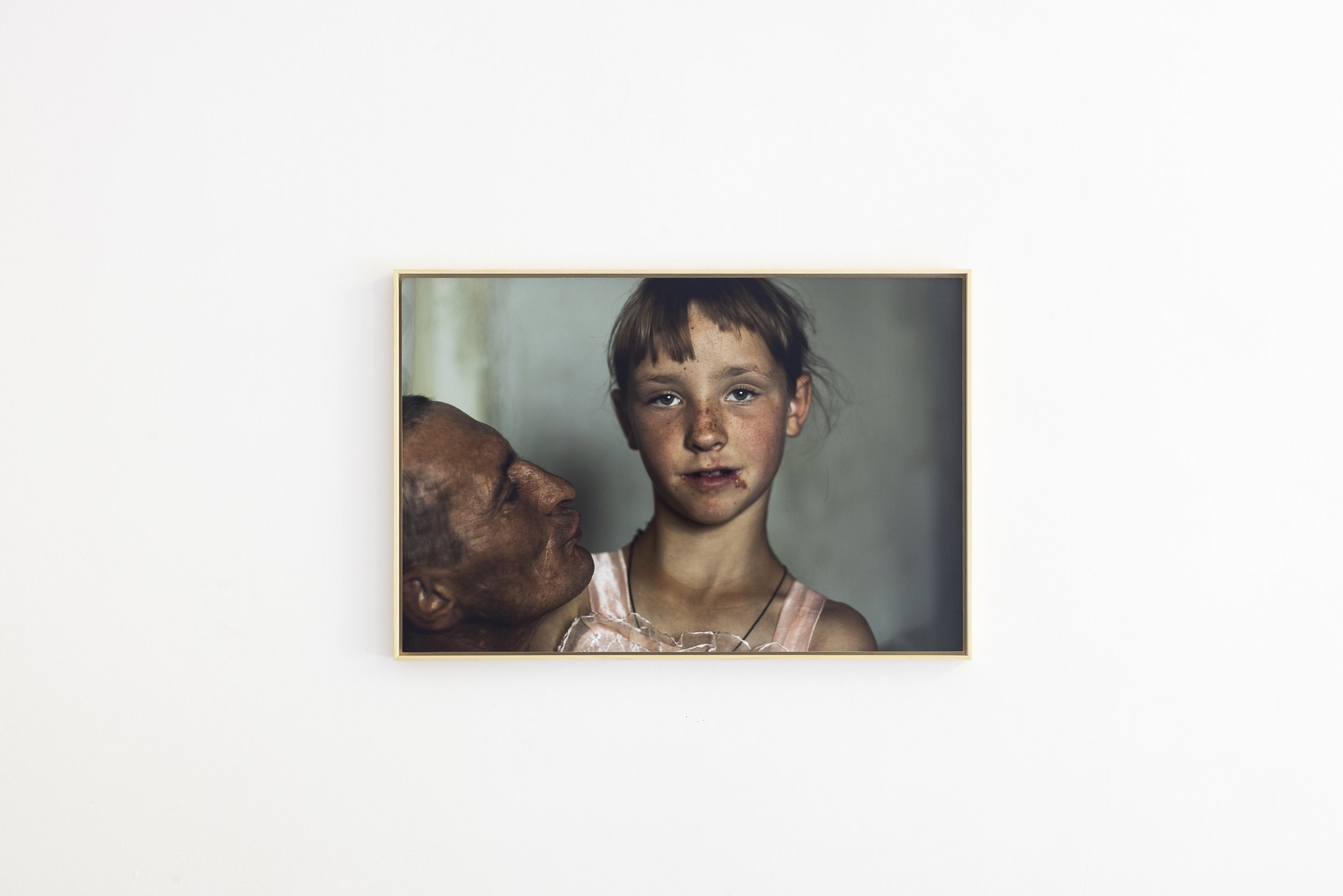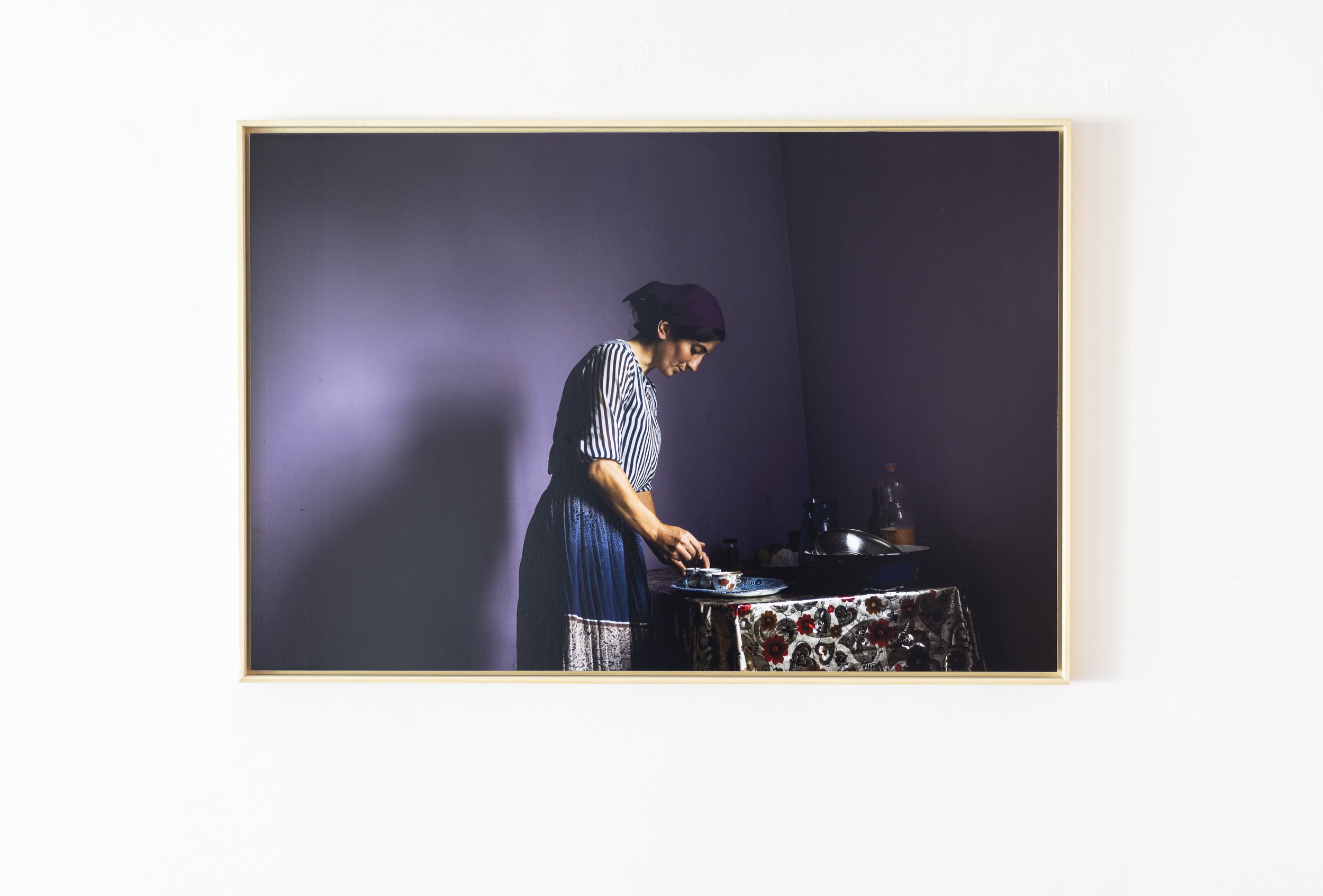It’s a Girl
12.04.-31.05.2025
Artists: Nina Akhobadze, Tamar Giorgadze, Natela Grigalashvili, Tamar Gurgenidze,Rusudan Khizanishvili, Tamara K.E., Ninka Skhiereli, Ani Toidze
“While reflecting on my own mortality the other day, I made a profound discovery: I’ve realized that my entire approach to thinking had been both excessively abstract and overly concrete. Too abstract: death. Too concrete: myself. Yet, there exists an intermediate concept that is both abstract and concrete: woman. Recognising myself as a woman, I suddenly glimpsed a whole new dimension of death before me.”
Susan Sontag, Diaries 1974
Window Project presents "It’s a Girl", a group exhibition that critically engages with the discourse surrounding women’s freedom and identity within contemporary society. Drawing on feminist texts from the 1970s, the exhibition critiques established social structures and representations, urging society to reconsider the conditions and circumstances under which women's experiences, challenges, and roles are shaped.
Since the second half of the twentieth century, the feminist movement has increasingly adopted an active and radical liberation-oriented character. This form of activism serves as a foundation for questioning the fundamental principles of the patriarchal system, creating discomfort in a world that has long been structured by masculine norms, and exploring the causes of protest and potential pathways to resolve systemic inequities.
In this context, Linda Nochlin’s influential essay “Why Have There Been No Great Women Artists?” (1971) holds particular relevance. Nochlin identifies the institutional structures of society and the educational system as key factors that perpetuate cultural signals and codes which systematically exclude women from achieving artistic greatness. The answer to this question, Nochlin argues, can be found by reversing the inquiry: “What makes an artist great?” and, consequently, why has such support historically been inaccessible to women?
According to UBS research, the representation of female artists in the global art market from 2018 to 2024 has fluctuated between 33% and 45%. However, this increase has not occurred organically; it is, rather, the result of deliberate efforts by global art institutions to address historical inequities and promote greater inclusivity within the art world.
Through this exhibition, the gallery aligns itself with these institutional efforts, presenting works by female artists from different generations, each engaging critically with themes central to the female experience. These themes include the standards of beauty and femininity, systemic codes and ideological-linguistic expectations, the rejection of independence, tendencies toward persecution, and the role of tradition—both as a source of pressure and as a form of refuge. The exhibition also examines the significance of social status and the impact of lifestyle choices on women's lived experiences.
The research underlying the exhibition not only interrogates the concept of freedom but also challenges the pursuit of it—posing the question of whether such a struggle, within the context of an entrenched patriarchal system, may ultimately remain an illusion.
The fight for women's "liberation" has been ongoing for a mere 60 years, a relatively short period in the grand span of human history. Yet, this struggle has emerged in response to a new stage in the development of civilisation, one marked by new opportunities, roles, and demands. A significant strand of feminist inquiry asserts the profound incompatibility between feminine cultural codes and the masculine paradigm on which current culture is based. In this context, the only possible means of transforming this condition is perceived as revolution, annulment, or cataclysmic upheaval—metaphorically described as "death." Is such a developmental trajectory feasible? To what extent is the demand for freedom, as it is currently understood, consciously recognised by women themselves? And, in the absence of such a demand, what is the nature of this state, if not an existential lifelessness?
-

Exhibition View
Tamara K.E.
-
Exhibition View
Natela Grigalashvili
-
Exhibition View
Natela Grigalashvili
-

Exhibition View
Nina Akhobadze, Rusudann Khizanishvili, Natela Grigalashvili
-

Exhibition View
Rusudan Khizanishvili, Nina Akhobadze
-

Exhibition View
Ninka Skhiereli, Tamar Gurgenidze, Rusudan Khizanishvili
-

Exhibition View
Ninka Skhiereli, Tamar Gurgenidze, Rusudan Khizanishvili, Ani Toidze
-

Exhibition View
Tamar Gurgenidze, Rusudan Khizanishvili, Ani Toidze
-

Exhibition View
Tamara K.E., Tamar Giorgadze
-

Exhibition View
Tamara K.E., Tamar Gurgenidze


